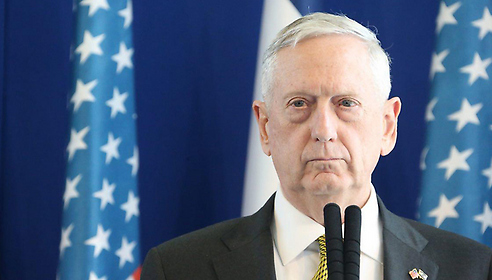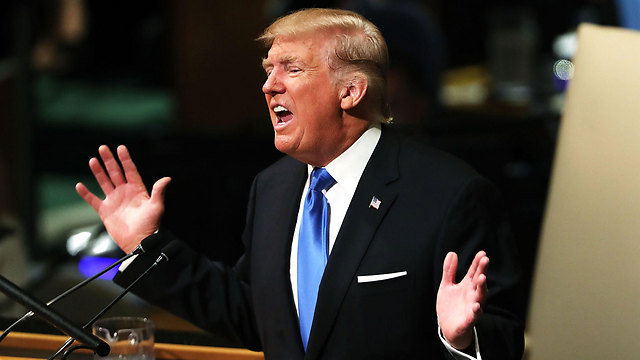
Ynetnews – US Defense Secretary Jim Mattis said on Tuesday the United States should consider staying in the Iran nuclear deal unless it were proven that Tehran was not abiding by the agreement or that it was not in the US national interest to do so.
Although Mattis said he supported President Donald Trump’s review of the agreement curbing Iran’s nuclear program, the defense secretary’s view was far more positive than that of Trump, who has called the deal agreed between Iran and six world powers in 2015 an “embarrassment.”
Trump is weighing whether the pact serves US security interests as he faces an Oct. 15 deadline for certifying that Iran is complying, a decision that could sink an agreement strongly supported by the other world powers that negotiated it.
“If we can confirm that Iran is living by the agreement, if we can determine that this is in our best interest, then clearly we should stay with it,” Mattis told a Senate hearing.
“I believe …, absent indications to the contrary, it is something that the president should consider staying with,” Mattis added.
Earlier, when Mattis was asked whether he thought staying in the deal was in the US national security interest, he replied: “Yes, senator, I do.”
The White House had no immediate comment on Mattis’ remarks, which once again highlighted the range of views on major policy issues within the Trump administration.
If Trump does not recertify by Oct. 15 that Iran is in compliance, congressional leaders would have 60 days to decide whether to reimpose sanctions on Tehran suspended under the accord.
That would let Congress, controlled by Trump’s fellow Republicans, effectively decide whether to kill the deal. Although congressional leaders have declined to say whether they would seek to reimpose sanctions, Republican lawmakers were united in their opposition to the agreement reached by Democratic former President Barack Obama.
Senator Tom Cotton, a long-time skeptic about the Iran deal, backed decertification in order to threaten Iran with more sanctions or military action.
“One thing I learned in the Army is that when you have your opponent on his knees, you drive him to the ground and choke him out,” Cotton said in a speech on Tuesday to the Council on Foreign Relations in Washington.
‘FUNDAMENTALLY’ IN COMPLIANCE
In a House of Representatives hearing on Tuesday, Mattis said Iran was “fundamentally” in compliance with the nuclear deal.
“There have been certainly some areas where they were not temporarily in that regard, but overall our intelligence community believes that they have been compliant and the IAEA (International Atomic Energy Agency) also says so,” Mattis said.
Last month, Iran’s President Hassan Rouhani said the accord cannot be renegotiated.
Trump has said he has made a decision on what to do about the agreement but has not said what he has decided.
The prospect of Washington reneging on the agreement has worried some US partners that helped negotiate it, especially as the world grapples with North Korea’s nuclear and ballistic missile development.
Backers of the pact say its collapse could trigger a regional arms race, worsen Middle East tensions and discourage countries like North Korea from trusting Washington to keep its word.

White House national security adviser H.R. McMaster has defended Trump’s criticism of the nuclear agreement, saying it had the “fatal flaw” of a “sunset clause,” under which some restrictions on Iran’s nuclear program expire from 2025.
European ambassadors speaking in Washington last week said they would do everything possible to protect companies based in Europe and that continue to do business with Iran from reimposed US sanctions.
French Ambassador Gerard Araud noted that the other countries that signed the pact had made clear they do not support renegotiating it.
J Street, a liberal pro-Israel group, said Trump did not have legitimate grounds to decertify the deal.
“If he chooses to do so anyway, he will be acting purely based on divisive politics and dangerous ideology, and endangering the security of the US and our allies,” Dylan Williams, vice president of government affairs for the group, said in a statement.




